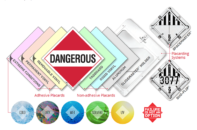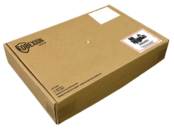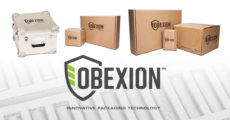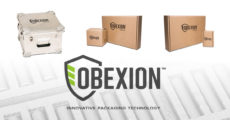Among all the dire news surrounding the COVID-19 crisis, there’s one story that’s lightened a lot of people’s moods: distillers of alcoholic beverages (including several in the Chicago area) switching over some of their production to make desperately needed hand sanitizer. We love this story because: Supplies of hand sanitizer have been running low at…
Why it’s absolutely essential to choose the right hazmat placard
True fact: No one ever got promoted for choosing the right hazmat placard. Choosing the wrong placard, however, could have negative consequences for anyone’s job prospects. Think about it. Every Dangerous Goods shipment represents a significant investment in time and materials, and it could be part of a supply chain impacting several organizations. Yet one…
Obexion’s “Excellence in Transit Packaging” award: our acceptance speech
Creating resources for safe and compliant Dangerous Goods transport isn’t generally considered a creative business. Unlike practitioners of film, music, television and literature, we don’t dream about winning awards. And yet, we have. Last week, at Industrial Pack 2019, our Obexion lithium battery packaging won the Industrial Packaging Award for Excellence in Transit Packaging. There…
What Obexion’s special permit means for lithium battery shipping
If your business ever ships damaged, defective or recalled lithium-ion batteries—or devices that contain them—you need a thorough knowledge of section 173.185 of the 49th volume of the Code of Federal Regulations. Ha! Just kidding! You really only need to know one word: Obexion. Here’s why: In addition to its revolutionary, fire-mitigating fiberboard material, every…
Industrial Pack 2018 preview: a new chance to discover Obexion
Next week, vendors and buyers from every segment of the packaging industry will meet up at the Cobb Galleria Centre in Atlanta for the first annual Industrial Pack 2018. Of course, Labelmaster will be there! The organizers of Industrial Pack describe it as “North America’s FIRST and ONLY free-to-attend trade event dedicated to … bring…
As blockchain gets bigger, will hazmat transport get linked up?
Almost a year ago, we asked why no one was talking about blockchain in hazmat shipping. As far as we know, we’re still the only ones asking. There have been no significant developments in the application of blockchain technology to Dangerous Goods transport. Yet, as blockchain continues to grow more important to worldwide logistics, it…
7 new lithium battery technologies; 0 new regulations
Considering the sheer impact of lithium batteries and the devices they power on today’s global economy, any new wrinkle in the regulations governing lithium battery transport creates aftershocks among: Battery manufacturers Device manufacturers Airlines and freight carriers E-commerce retailers Product recall managers Third-party logistics companies Hazmat trainers And anyone who owns a cell phone, laptop,…
Lithium batteries and new technology dominate our top 10 posts of 2017
If you’re a Dangerous Goods professional, just keeping up with changing regulations can be a full-time job. But you also have to make sure all your team members are compliantly trained, and you might even have to prove to your upper management (over and over again) that hazmat compliance is an area that justifies serious…
9 reasons you’re going to love complying with FMCSA’s ELD mandate
The deadline for U.S. truck operators to replace paper logs with electronic logging devices (ELDs) is just a few weeks away. While many operators have already switched, others’ attitudes toward making the transition might best be described as “kicking and screaming.” We get it. Change is hard, and complying with yet another federal mandate can…
Is Obexion the lithium battery shipping breakthrough we’ve been waiting for?
To the surprise of absolutely no one, lithium battery shipping once again dominated the agenda at the recent 2017 Dangerous Goods Symposium. The story, in a nutshell: There will continue to be more and more lithium batteries and battery-powered devices to transport, and transporting them safely and compliantly will continue to be challenging. The big…









